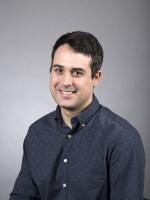Two candidates vying for the New York State Assembly seat that covers portions of Washington and Saratoga Counties met Wednesday night for a debate.
Assemblywoman Carrie Woerner, a first-term Democrat, and Republican challenger Chris Boyark attempted to make the case for how they’d reach across the aisle.
In her opening remarks, Woerner, who grabbed the 113th District seat after the retirement of Republican Tony Jordan, said bipartisanship has been a hallmark of her two years in Albany.
“On each of the 18 pieces of legislation that I passed through the Assembly, I had co-sponsors from both parties and I am meticulous about having Republican support in the Senate,” said Woerner.
Boyark, a restaurant owner and former Marine, said his experience shows a record of working with people from different backgrounds.
“I do believe that its important for us to have a voice and an advocate for our beliefs in this district and I believe strongly that I can effectively be that voice. I’m from this area, I grew up in this area. I attended middle school in this very building,” said Boyark.
The candidates were first questioned about single-payer health care. Boyark said he did not support a single-payer model. Woerner said she voted twice against single-payer bills that she claimed were not viable.
The candidates also spoke in favor of re-privatizing the New York Racing Association, which has been under state control for the past several years and is an important issue in Saratoga Springs.
The candidates clashed when asked about ethics reforms. Woerner discussed reforms from the Democratic majority she supported.
“I helped to pass the pension forfeiture bill, I helped to pass closing the LLC loophole, I have sponsored term limits bills, I have sponsored a package of 32 rules reforms to make the Assembly more transparent and accountable,” said Woerner.
Boyark asked Woerner why she did not support ethics reform bills introduced by her Republican colleagues.
“Simple things as requiring a two-thirds majority for messages of necessity, which the governor seems to love, going into sessions after midnight, eight-year term limits for committee chairs, term limits for leaders. If we support term limits I would’ve expected you vote in favor of those things and not against them,” said Boyark.
Woerner countered, saying the provisions mentioned by Boyark are what’s referred to as “hostile amendments” and that she would not support them.
“They’re offered directly onto the floor and they don’t go through the full legislative process. They don’t go through the committees. Often times the sponsor of those bills don’t even ask the committee chairs to put them through the committee.”
Boyark argued that the committee process was closed to the public. Woerner said the public may attend the meetings and that she has supported legislation that would outfit committee chambers with video streaming equipment.
The 113th district is home to new high-tech companies, including the massive GlobalFoundries plant in Malta, but many former mill towns are struggling to get by. When asked about what they would do to support new business, Boyark said taxes and over-regulation are killing the business climate.
“And we have to lay a solid foundation for small business to be able to thrive and develop. And that’s going to help these economies, this is going to help these towns grow. They’re not going to have these big corporations coming in anymore,” said Boyark.
Woerner said while taxes will always play a factor in where businesses locate, she said it’s an energy-deficit that is keeping companies away from upstate New York.
“We do not have sufficient power or natural gas to fuel the growth of those kinds of business and it will clearly put a brake on our ability to add jobs to both our traditional economy and to our new economy jobs,” said Woerner.
To increase commerce on the Hudson River, Boyark said investments in infrastructure and creating a more business-friendly climate would encourage more companies to use the river for shipping. Woerner spoke in favor of navigational dredging on the Champlain Canal to restore the waterway, which is now restricted to only certain kinds of traffic.






